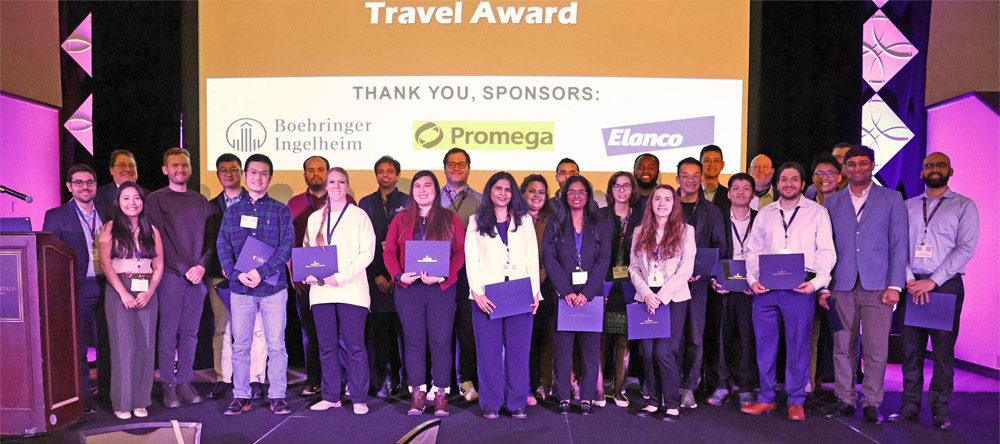Unique molecules hold promise for anti-parasitic drugs
Parasitic nematodes, such as roundworms, pose a big problem for the livestock industry globally. Medicines that used to control these parasites are no longer effective, but Dr. William Witola at the College of Veterinary Medicine recently received a grant to investigate a molecular pathway that would kill these parasites. If successful, this work could improve food production and fight hunger.
Dr. Witola, who joined the Department of Pathology as an assistant professor in 2015, was awarded $489,877 over four years from the USDA National Institute of Food and Agriculture-Agriculture and Food Initiative. He is collaborating on the project with Dr. Ray Kaplan, a professor of veterinary parasitology at the University of Georgia at Athens.
My laboratory’s main aim in this project is to identify and validate novel compounds that can … be modified in order to make them optimally effective in killing the various types of livestock roundworms, including those that are resistant to current drugs.
Dr. William Witola
“The overarching goal of research in my laboratory is to develop fundamental strategies for designing new effective therapies and vaccines against parasitic infections,” says Dr. Witola.
His proposal focused on identifying and validating broad-spectrum inhibitors for essential molecules in parasitic nematodes, such as roundworms, that infect livestock. The goal is to use the inhibitors as lead-compounds for developing a new generation of effective anti-parasitic drugs.
“In the United States and world-over, nematode infections are among the most economically important health problems of livestock, costing the global livestock industry billions of dollars annually,” says Dr. Witola.
The only reliable way to control nematodes in livestock used to be by using a category of medicines called anthelmintics. However, nematodes infecting livestock developed resistance to almost all currently available anthelmintics, leaving livestock producers with no effective means for treating infected livestock.
Dr. Witola’s laboratory has identified unique molecules called phosphoethanolamine methyltransferases (PMTs) that nematodes use to reproduce and grow; without these molecules, nematodes can’t survive in livestock. The PMTs are used to produce a lipid called phosphatidylcholine, which is important for survival, reproduction, and growth in nematodes.
Since PMTs are not present in livestock, they can be targeted for inactivation using specific chemical compounds. The compounds will leave the livestock unaffected while harming the nematodes.
“My laboratory’s main aim in this project is to identify and validate novel compounds that can specifically inactivate PMTs in various types of nematodes,” says Dr. Witola. “Identified compounds will be modified in order to make them optimally effective in killing the various types of livestock roundworms, including those that are resistant to current drugs.”
Dr. Witola hopes that the compounds will serve as lead-compounds for developing a new generation of fully effective anthelmintic drugs for killing nematodes in livestock and lead to improved livestock productivity and enhanced food security around the world.
By Da Yeon Eom

![[Dr. William Witola]](https://vetmed.illinois.edu/wp-content/uploads/2021/04/news-witola-grant.jpg)


